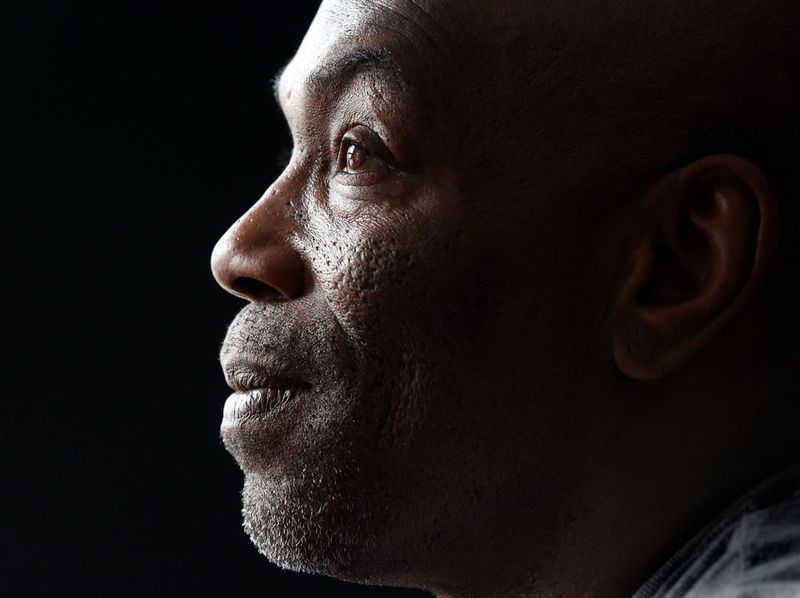At the opening night of the 18th Montreal International Black Film Festival on Sept. 20, my friend and I were out of place in our fresh-from-class outfits, contrasting sharply against the crisply pressed suits and vibrant formal wear. Founded in 2005 by the Fabienne Colas Foundation, the festival’s goal is to showcase the best new Black films, while also creating a space to discuss cultural, social, and economic issues that affects the Black community. The Cinéma Impérial was filled with directors from 25 different countries, as well as film students and plebeians like us eager to see the festival’s opening film, Matt Walbeck’s Lovely Jackson.
To say that Lovely Jackson is important is an understatement; it is truly essential given the historical influence of carceral systems in North America. Due to the increased scrutiny on the systemic racism of not only the United States’ justice system, but justice systems around the world, the harrowing tale of an African-American man wrongfully imprisoned for nearly four decades is one that startles, yet informs, audiences. This true story follows Rickey Jackson—who also narrates the film—from before and after his arrest, imprisonment, and eventual release decades later for a murder he did not commit. Ultimately, Jackson ended up spending 39 years, three of which were on death row, in some of Ohio’s most dangerous prisons due to a conviction based solely on the coerced eyewitness testimony of a 12-year-old. Alternating between black-and-white and colour film, it is reminiscent of Alice in Wonderland (1951) with spiralling special effects and an otherworldliness that highlights the film’s tense emotions. After the screening, both Jackson (over Zoom) and director Matt Waldeck (in-person) answered questions during a Q&A.
Jackson said that this film was a truly collaborative endeavour between Waldeck and Jackson, and their understanding and respect for each other was evident during the interview.
“This whole process was possible because we trusted each other,” Jackson explained.
Jackson went on to say that prison had hardened him emotionally, so it was difficult for him to express his feelings, especially about his experiences. Their close friendship and Waldeck’s hands-off approach to filmmaking, however, allowed Jackson to explore emotions that he had suppressed and then to convey those feelings to a broader audience.
Waldeck breaks the barriers between what a filmmaker is expected to do when approaching a subject in order to more fully capture Jackson’s struggle. He and Jackson would talk about how each moment in his life had impacted him and then shoot a scene, emphasizing how he wanted the film to come from the heart. He interfered as little as possible, even shooting the film without a formal script.
“Everything you hear is from Rickey’s mind, spirit, and imagination,” Waldeck said. “[I] wanted an authenticity that was not going to come from my words on paper.”
It would be hard to believe that Jackson, who walked around his house while simultaneously addressing the audience over Zoom, has suffered all he has. His down-to-earth, kind personality, and upbeat attitude struck a chord with everyone in the audience. It was clear that Jackson was deeply humbled by the standing ovation he received. The interviewer asked him how he survived his unjust imprisonment, and he took a breath and sighed.
“Simple word, man: Faith,” Jackson said. “I never gave up. Because I had faith, things just fell into place.”
He also credited his mother as a significant source of comfort to him, explaining that while she did not say much during his sentence, the words of strength she did give him sustained him through his many years of imprisonment.
At one point during the interview, Jackson started crying and wiped his tears on a brand-new pack of pink socks. It served as an accurate metaphor for his personality and the emotional yet humorous approach to life that defined not only the movie, but the man himself.
One of the most impactful moments in the film is when Jackson, having been declared an innocent man, walks out of the courtroom and into the bright morning sunlight. Towards the end of the Q&A, the interviewer asked Rickey Jackson if he felt vindicated by Waldeck’s film, as if a great wrong had finally been made right.
“I vindicated myself,” he answered. “I vindicated myself when I walked out of that courtroom.”
Lovely Jackson is Matt Waldeck’s debut film as a director. The MIBFF ran from Sept. 20- 25.








